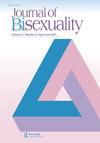“I Was a Game or a Fetish Object”: Diverse Bisexual Women’s Sexual Assault Experiences and Effects on Bisexual Identity
IF 1.9
Q2 SOCIAL SCIENCES, INTERDISCIPLINARY
引用次数: 7
Abstract
Abstract Utilizing minority stress theory and intersectionality framework, this qualitative content analysis explored sexual assault experiences among 532 diverse bisexual women and gender expansive people. Findings revealed that many participants attributed their experiences of sexual assault to binegativity, which manifested as hypersexualization, “corrective rape,” perpetrator insecurity, and interpersonal hostility. In addition, participants described intersections between binegativity and other forms of oppression, including gendered racism, gendered binegativity, ableism, sizeism, and classism, and shared how they believed that these intersecting forms of oppression made them more vulnerable to sexual assault. Participants also described the ways in which sexual assault affected their understanding of and experience with their bisexual identity. For example, many participants expressed a number of relational and sexual affects (e.g., greater caution when entering into relationships with people of a certain gender, sexual discomfort, decreased sexual agency) and effects on their bisexual identity (e.g., identity disclosure process, questions about multiple aspects of their identities). Suggestions for future research and practice implications are discussed.“我是游戏还是恋物”:不同双性恋女性的性侵经历及其对双性恋身份的影响
摘要利用少数群体压力理论和交叉性框架,本定性内容分析探讨了532名不同性别的双性恋女性和性别膨胀者的性侵经历。研究结果显示,许多参与者将他们的性侵经历归因于双重性,表现为性欲亢进、“矫正性强奸”、施暴者的不安全感和人际敌意。此外,参与者描述了双重性和其他形式的压迫之间的交叉点,包括性别种族主义、性别双重性、能力主义、尺寸主义和阶级主义,并分享了他们如何认为这些交叉形式的压迫使他们更容易受到性侵犯。参与者还描述了性侵如何影响他们对双性恋身份的理解和体验。例如,许多参与者表达了一些关系和性影响(例如,在与特定性别的人建立关系时更加谨慎、性不适、性代理减少)以及对其双性恋身份的影响(例如身份披露过程、关于其身份多个方面的问题)。讨论了对未来研究和实践意义的建议。
本文章由计算机程序翻译,如有差异,请以英文原文为准。
求助全文
约1分钟内获得全文
求助全文
来源期刊

Journal of Bisexuality
SOCIAL SCIENCES, INTERDISCIPLINARY-
CiteScore
2.60
自引率
17.60%
发文量
32
期刊介绍:
The Washington Quarterly (TWQ) is a journal of global affairs that analyzes strategic security challenges, changes, and their public policy implications. TWQ is published out of one of the world"s preeminent international policy institutions, the Center for Strategic and International Studies (CSIS), and addresses topics such as: •The U.S. role in the world •Emerging great powers: Europe, China, Russia, India, and Japan •Regional issues and flashpoints, particularly in the Middle East and Asia •Weapons of mass destruction proliferation and missile defenses •Global perspectives to reduce terrorism
 求助内容:
求助内容: 应助结果提醒方式:
应助结果提醒方式:


